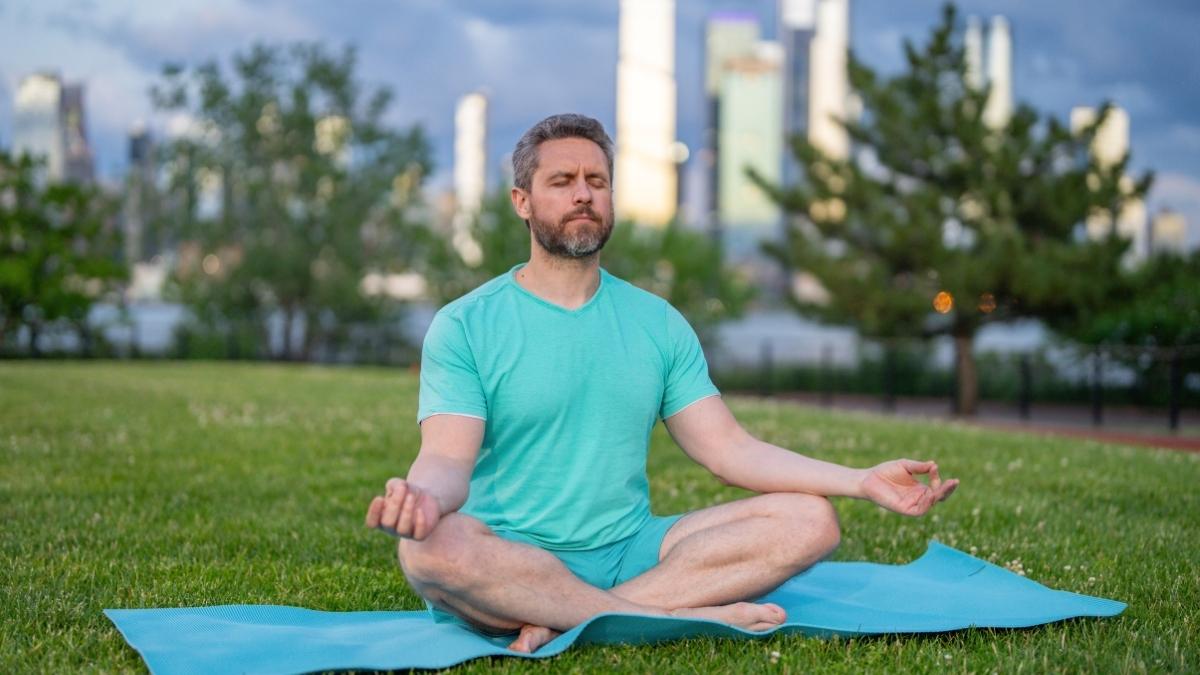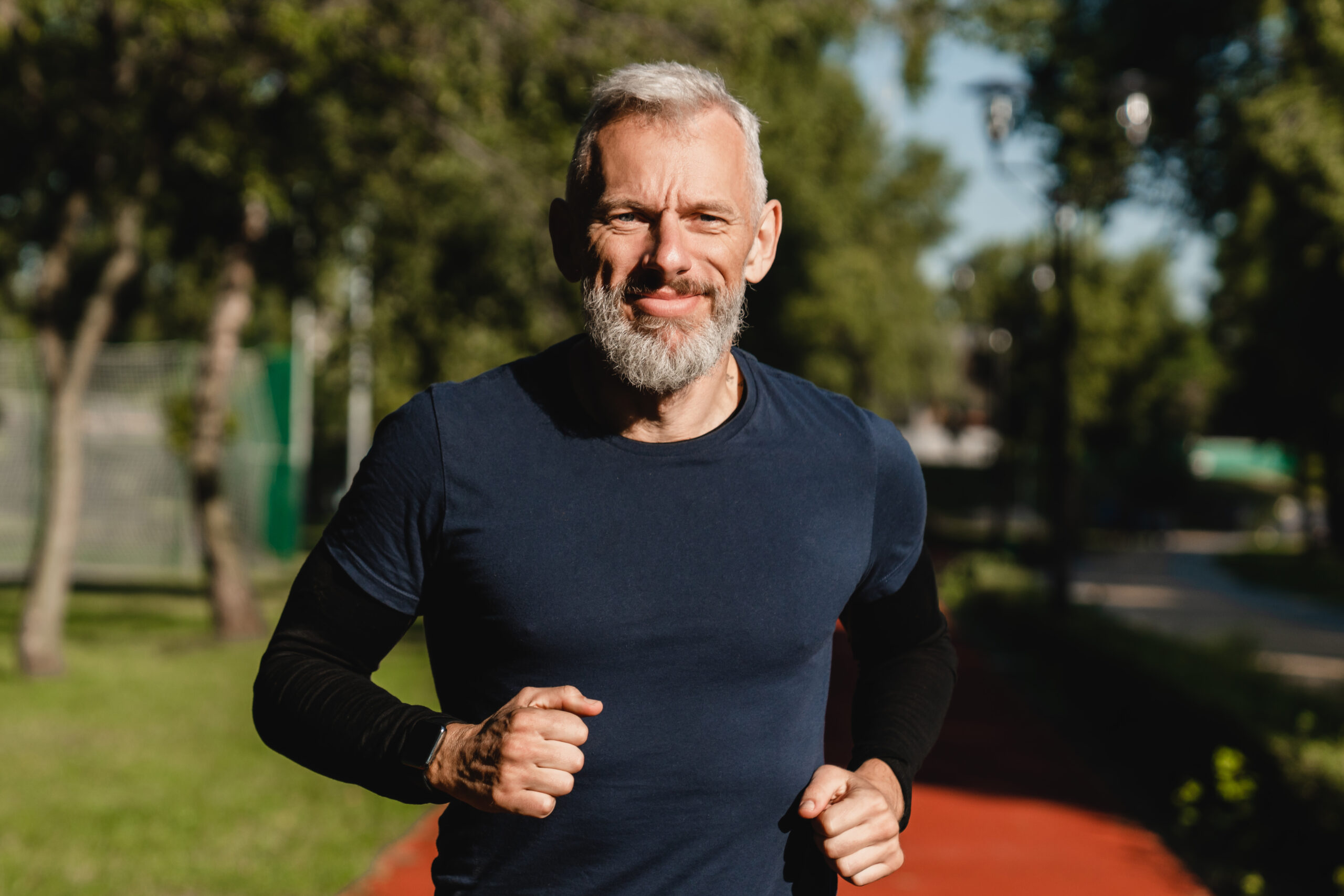You know you should eat better, exercise more, and stress less. But every health article you read demands major lifestyle changes. Cut out entire food groups. Work out for an hour daily. Meditate for 30 minutes. Buy expensive supplements. Follow complicated meal plans.
Here’s the truth: the most powerful daily habits that add years to your life are surprisingly simple. They take minutes, not hours. They cost little or nothing. And science proves they work.
Research shows that people who follow basic longevity habits live 8-10 years longer than those who don’t. These aren’t extreme changes. They’re small adjustments to things you already do every day.
In this guide, you’ll discover 10 scientifically-proven habits that can increase lifespan without turning your life upside down. Each habit takes less than 10 minutes to implement. Each one is backed by real research showing how it protects your health and fights aging.
You don’t need to master all 10 habits at once. Pick a few that feel easy and build from there. Small changes compound over time. What starts as a simple morning routine becomes a complete longevity lifestyle that adds decades to your life.
1. Start Your Day with 16 Ounces of Water (Hydration Habit)

You wake up feeling foggy and tired. Your skin looks dull. You can’t focus at work. The fix might be simpler than you think.
Your body just spent 6-8 hours without water. You’re dehydrated before your day even starts. And here’s the problem: 75% of Americans are chronically dehydrated. That’s not just uncomfortable. It’s aging you faster.
When you don’t drink enough water, your cells can’t repair themselves properly. Dehydration speeds up aging at the cellular level. Your kidneys struggle to remove toxins. Your metabolism slows down. Your brain works 12% worse than it should.
But there’s good news. Starting your day with 16 ounces of water fixes this fast.
Morning hydration jump-starts your metabolism. It helps your kidneys flush out toxins that built up overnight. Your brain gets the fluid it needs to think clearly. Proper hydration can improve your cognitive function by 12%. That’s like getting a mental upgrade just from drinking water.
How much water should you drink all day? Take your body weight and divide by two. That’s how many ounces you need daily. A 150-pound person needs 75 ounces.
But start with those morning 16 ounces. It’s one of the easiest longevity habits you can build.
Here’s your simple strategy: Fill a large glass with water before bed. Put it on your nightstand. When you wake up, drink it before you check your phone or get coffee.
That’s it. No special equipment. No expensive supplements. Just water.
This one healthy lifestyle tip sets up your entire day for success. Your body will thank you. Your brain will work better. And you’ll start each morning feeling more energized and alert.
2. Walk 7,000+ Steps Daily (The Longevity Sweet Spot)

You think you need to run marathons or hit 10,000 steps to live longer. You don’t.
Most people stress about that 10,000-step goal. They feel like failures when they miss it. But here’s what Harvard researchers found: 7,000 steps is the real sweet spot for longevity.
A Harvard study tracked 16,741 women for four years. Those who walked 7,000 steps daily reduced their death risk by 50%. That’s huge. Each extra 1,000 steps after that only lowered mortality by 6-15% more.
This means you don’t need to become a fitness fanatic to increase lifespan naturally. You just need to move more than you do now.
The best part? You can get 7,000 steps without setting foot in a gym.
Park at the far end of parking lots. Take the stairs instead of elevators. Walk to a coworker’s desk instead of sending an email. Have walking meetings for phone calls. Walk while you brush your teeth or talk on the phone.
These small changes add up fast. A five-minute walk to the mailbox is about 500 steps. Taking stairs for two floors is 30 steps. Walking during a 30-minute phone call gets you 3,000 steps.
Track your steps with your phone or a simple fitness tracker. Most phones count steps automatically. Check your number at lunch. If you’re low, take a quick walk around the block.
Don’t overthink this daily habit. You’re not training for the Olympics. You’re just moving your body more than yesterday.
Start where you are. If you currently walk 3,000 steps, aim for 4,000 next week. Build up slowly. Your body will adapt. Your energy will improve. And according to Harvard, you’ll cut your death risk in half.
That’s a pretty good return on a simple daily walk.
3. Eat a Handful of Nuts Daily (The 5-Minute Longevity Snack)

You want to live longer but hate complicated diets. You grab chips or cookies when hunger hits at 3 PM. There’s a better way.
One small handful of nuts daily can add years to your life. And here’s why that matters: eating nuts five or more times per week reduces your death risk by 20%. Research shows walnut consumption is linked to 2.3 years of increased lifespan.
That’s a pretty good return for a five-minute snack.
Walnuts and almonds give you the biggest longevity benefits. Walnuts fight inflammation in your body. They’re packed with omega-3 fatty acids that protect your heart and brain. Almonds support heart health and help control blood sugar.
The perfect serving size is one ounce. That’s about 23 almonds or 14 walnut halves. It fits in your palm. Don’t eat more thinking it’s better. More nuts mean more calories without extra longevity benefits.
Here’s how to make this daily habit stick. Keep small containers of nuts in your car, desk drawer, and kitchen counter. Eat them at the same time each day. Many people choose afternoon snack time or right after lunch.
Add nuts to foods you already eat. Sprinkle almonds on salads. Mix walnuts into yogurt. Toss them in your morning oatmeal.
Buy nuts in bulk to save money. Store them in the freezer to keep them fresh longer. Skip the fancy flavored versions. Plain nuts work just as well and cost less.
This healthy lifestyle tip doesn’t require meal prep or cooking skills. You don’t need to change your entire diet. Just swap your usual afternoon snack for a handful of nuts.
Your heart will get stronger. Inflammation in your body will drop. And according to research, you’ll live longer. All from eating something that takes zero preparation time.
4. Practice 5 Minutes of Deep Breathing (Stress-Busting Habit)

Your mind races at night. Work stress follows you home. Your shoulders stay tight all day. This constant stress is literally stealing years from your life.
Chronic stress can shorten your lifespan by 2.8 years. It floods your body with cortisol, a hormone that damages your cells and speeds up aging. Your immune system weakens. Your heart works harder. Your brain ages faster.
But here’s good news: just five minutes of deep breathing can reduce your cortisol by 23%. That’s a huge drop in stress hormones from something that costs nothing and takes less time than checking social media.
The 4-7-8 breathing technique works best. Breathe in through your nose for 4 counts. Hold your breath for 7 counts. Exhale through your mouth for 8 counts. Repeat this cycle four times.
Your nervous system will shift from fight-or-flight mode to rest-and-repair mode. Your heart rate slows down. Your muscles relax. Your mind gets clearer.
Practice this daily habit at three key times. Do it when you wake up to start your day calm. Try it before meals to improve digestion. Use it at bedtime to sleep better.
You don’t need special equipment or apps, but they can help. Apps like Calm or Headspace guide you through breathing exercises. Some people prefer YouTube videos with breathing timers.
Start small. If five minutes feels too long, begin with two minutes. Build up slowly. Your body will learn to relax faster with practice.
This is one of the easiest daily habits that add years to your life. No gym membership required. No special diet. Just you and your breath, fighting back against stress that’s trying to age you too fast.
5. Get 7-9 Hours of Quality Sleep (The Ultimate Recovery Habit)

You toss and turn all night. You wake up feeling like you never slept. You drink coffee all day just to function. Sound familiar?
Poor sleep is killing you slowly. Getting less than six hours of sleep increases your death risk by 12%. But here’s the flip side: good sleep can add five or more years to your lifespan. That makes sleep one of the most powerful healthy lifestyle tips you can follow.
While you sleep, your body repairs damaged cells. Your brain cleans out toxins that built up during the day. Your immune system gets stronger. This is when the real anti-aging magic happens.
Most adults need 7-9 hours of sleep. People over 65 can get by with 7-8 hours. But quality matters more than just hitting a number on your clock.
Your bedroom should be cool, dark, and quiet. Keep it between 65-68 degrees. Use blackout curtains or an eye mask. Your phone should charge in another room, not on your nightstand.
Go to bed and wake up at the same time every day. Yes, even on weekends. Your body loves routine. A consistent schedule helps you fall asleep faster and sleep deeper.
Stop eating large meals three hours before bed. Skip caffeine after 2 PM. Alcohol might make you drowsy, but it ruins your sleep quality later in the night.
Create a wind-down routine. Read a book. Take a warm bath. Do some light stretching. Start this routine 30 minutes before your target bedtime.
If you can’t fall asleep within 20 minutes, get up. Do a quiet activity until you feel sleepy. Then try again.
This daily habit to increase lifespan naturally doesn’t cost anything. You don’t need special equipment or supplements. You just need to make sleep a priority instead of something you squeeze in when everything else is done.
Your body will repair itself better. Your mind will stay sharper longer. And you’ll add years to your life while feeling more energized every day.
6. Eat Colorful Vegetables with Every Meal (The Rainbow Rule)

Your plate looks beige. Brown meat, white rice, maybe some pale potatoes. You know you should eat more vegetables, but they seem boring or take too much work.
Here’s what you’re missing: people who eat seven or more servings of vegetables daily reduce their death risk by 42%. Those following a Mediterranean diet rich in colorful vegetables live 8-10 years longer. That’s almost a decade of extra life from changing what’s on your plate.
Different colored vegetables contain different antioxidants and phytonutrients. These compounds fight inflammation and protect your cells from damage. Red tomatoes have lycopene. Orange carrots contain beta-carotene. Dark leafy greens are packed with folate and vitamin K.
The more colors you eat, the more protection you get.
Use the half-plate rule. Fill half your plate with vegetables at every meal. This simple healthy lifestyle tip ensures you get enough nutrients without counting servings or measuring portions.
Focus on these longevity superfoods: spinach, kale, broccoli, tomatoes, bell peppers, and berries. They pack the most anti-aging power per bite.
Don’t stress about fresh versus frozen vegetables. Frozen vegetables are often more nutritious because they’re picked at peak ripeness and frozen immediately. They’re cheaper, last longer, and require zero prep work.
Make vegetables easier to eat. Wash and chop fresh vegetables when you buy them. Keep pre-cut vegetables in clear containers at eye level in your fridge. Add frozen vegetables to soups, stir-fries, and pasta dishes.
Start small. Add one colorful vegetable to each meal this week. Next week, add another. Your taste buds will adapt. Your energy will improve.
This longevity habit doesn’t require a complete diet overhaul. Just make half your plate colorful instead of beige. Your body will get the nutrients it needs to repair itself and fight aging from the inside out.
7. Stand and Move Every 30 Minutes (Combat Sitting Disease)

You’re glued to your desk for eight hours straight. Your back aches. Your legs feel stiff. You tell yourself you’ll exercise after work, but sitting all day is still slowly killing you.
Sitting eight or more hours daily increases your death risk by 60%. That’s why experts call sitting “the new smoking.” Your blood pools in your legs. Your metabolism slows down. Your muscles weaken. Even if you hit the gym every day, prolonged sitting still damages your health.
But here’s the good news: just two minutes of movement every 30 minutes reduces your mortality risk by 33%. You don’t need to do jumping jacks or run laps. Simple movement breaks are enough to save your life.
Set a timer on your phone for every 30 minutes. When it goes off, stand up and move. Walk to the water cooler. Do ten squats by your desk. March in place for 30 seconds. Stretch your arms above your head.
Apps like Stand Up! or Move It remind you to move throughout the day. Your smartwatch probably has this feature built in.
Can’t afford a standing desk? Try a desk converter that sits on top of your current desk. Or stack books under your laptop to create a temporary standing station. Alternate between sitting and standing every hour.
Even tiny movements help. Tap your feet under your desk. Bounce your leg. Shift your weight from side to side. Clench and release your calf muscles. These micro-movements keep your blood flowing.
Take walking meetings when possible. Stand during phone calls. Walk to a coworker’s desk instead of sending an email.
This daily habit that adds years to your life requires no equipment or gym membership. Just interrupt your sitting every 30 minutes. Your body will thank you with better circulation, stronger muscles, and a longer lifespan.
8. Connect Socially Every Day (The Relationship Longevity Factor)

You come home to an empty house. You scroll through social media instead of calling friends. Work keeps you busy, but you feel lonely even in a crowd. This isolation is more dangerous than you think.
Loneliness has the same health impact as smoking 15 cigarettes daily. It increases inflammation in your body. It weakens your immune system. It raises your blood pressure and stress hormones.
But strong social connections increase your survival by 50%. That makes relationships one of the most powerful ways to increase lifespan naturally.
Quality matters more than quantity. You don’t need 500 Facebook friends. You need a few people who really care about you. One meaningful conversation beats ten shallow interactions.
Make social connection a daily habit. Call one person while you drive to work. Text a friend a funny meme. Chat with your neighbor when you get the mail. Ask the grocery store cashier how their day is going.
Schedule regular contact with people you care about. Set phone reminders to call your parents weekly. Plan monthly coffee dates with close friends. Make dinner plans with your spouse instead of eating in front of the TV.
Join activities where you’ll see the same people regularly. Take a fitness class. Volunteer at a local charity. Join a book club or hobby group. Consistent face-to-face contact builds stronger bonds than occasional big gatherings.
Be the person who reaches out first. Don’t wait for others to call you. Send the text. Make the dinner invitation. Most people want more connection but feel awkward making the first move.
This longevity habit costs nothing but time. You don’t need special skills or equipment. Just reach out to one person every day. Your mental health will improve. Your stress will drop. And according to research, you’ll live 50% longer than people who stay isolated.
9. Limit Processed Foods to 10% of Daily Calories (The 90/10 Rule)

You grab chips from the vending machine. You microwave frozen dinners after work. You start your day with sugary cereal. These foods are convenient, but they’re slowly poisoning your body.
Every 10% increase in processed foods in your diet increases your death risk by 14%. Meanwhile, people who eat mostly whole foods have 20% lower mortality rates. That’s a huge difference for something as simple as changing what you put on your plate.
Ultra-processed foods are anything that comes in a package with more than five ingredients. Think chips, cookies, frozen meals, sugary drinks, and most breakfast cereals. These foods are stripped of nutrients and loaded with preservatives, artificial colors, and chemicals your body doesn’t recognize.
The 90/10 rule makes this healthy lifestyle tip manageable. Eat whole foods 90% of the time. Save processed foods for 10% of your daily calories. That’s about 200 calories if you eat 2,000 calories per day.
Start with simple swaps. Replace chips with nuts or fresh fruit. Choose oatmeal instead of sugary cereal. Make smoothies instead of buying bottled ones. Cook simple meals instead of heating frozen dinners.
Read ingredient lists, not just nutrition facts. If you can’t pronounce an ingredient or don’t know what it is, skip that product. Foods with fewer than five ingredients are usually better choices.
Plan your meals on Sunday. Cook big batches of simple foods like rice, chicken, and roasted vegetables. When you have real food ready to eat, you won’t reach for processed options.
This daily habit doesn’t mean you can never eat pizza or cookies again. It means making whole foods your default choice. Your energy will be more stable. Your body will get the nutrients it needs to repair itself. And you’ll reduce your risk of dying early from diet-related diseases.
10. Practice Gratitude for 2 Minutes Daily (The Mental Health Longevity Boost)

Your mind fixates on what’s wrong. Traffic jams annoy you. Work stress follows you home. You fall asleep thinking about problems instead of good things that happened. This negative focus is literally shortening your life.
Optimistic people live 11-15% longer than pessimists. Regular gratitude practice is linked to a 7% increase in lifespan. That’s because positive emotions do more than make you feel good. They lower stress hormones, boost your immune system, and reduce inflammation in your body.
Gratitude rewires your brain to notice good things instead of dwelling on problems. It takes just two minutes daily to build this longevity habit.
Write down three things you’re grateful for each morning. Keep it simple. “I slept well. My coffee tastes good. My dog is healthy.” Don’t overthink it. The act of noticing good things trains your brain to find more of them.
If writing isn’t your thing, make a mental gratitude list during your commute. Or share one thing you’re grateful for with your family at dinner. The key is consistency, not perfection.
Practice gratitude at the same time each day. Right after you wake up works well because it sets a positive tone. Before bed also works because it helps you sleep better.
Focus on specific details. Instead of “I’m grateful for my family,” try “I’m grateful my daughter hugged me when she got home from school.” Specific gratitude feels more real and has stronger effects.
Don’t force fake positivity on bad days. You can be grateful for small things even when life is hard. “I’m grateful this difficult day is almost over” still counts.
This daily habit that adds years to your life costs nothing. It requires no equipment or special skills. Just two minutes of noticing what’s good in your life instead of what’s wrong.
Conclusion
These ten habits might seem simple, but their power lies in doing them together. Drinking water, walking more, eating nuts, breathing deeply, sleeping well, eating colorful vegetables, moving every 30 minutes, connecting with people, avoiding processed foods, and practicing gratitude. Each one adds protection against aging and disease.
You don’t need to change everything at once. That’s a recipe for failure. Pick two or three habits that feel easiest for you right now. Maybe start with drinking water when you wake up and walking 7,000 steps daily. Master those first.
Track your progress. Put check marks on a calendar. Use your phone’s step counter. Write your three gratitudes in a notebook. Seeing your streak grow keeps you motivated.
Add new habits every few weeks. Small changes compound over time. What starts as a glass of water becomes a complete lifestyle that protects your health and extends your life.
These daily habits that add years to your life work best when they become automatic. Start this week. Your future self will thank you.


